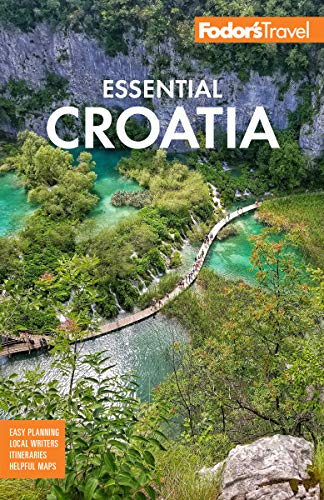Croatia Today
After centuries of being a part of larger political entities, Croatia's three decades of independence have been anything but steady. Coming out of the former Yugoslavia into a messy civil war, Croatia very swiftly traveled the long and winding road from a war zone to one of the world's must-see travel destinations. Few European countries have seen such highs and lows.
Tourism (and Overtourism)
Croatian territory encompasses some of the most stunning locations on the Mediterranean. From the truffle-bearing forests of Istria to the gleaming limestone cities of Dalmatia, Croatia is a singularly beautiful country. Although it has been a popular destination for European travelers for years (some of its busiest seasons were between World War II and 1991, when Europeans flocked to the resorts and hotels in Istria and Dalmatia), as little as ten years ago it still stood out as the "best buy" spot on the Mediterranean, with history, sights, service, and safety at reasonable rates. But due to the migrant crisis that affected Turkey and Greece and aided by an increasing number of cruise ships and a proliferation of private accommodations, Croatia has seen an unprecedented tourism boom in the last few years, with tourism now accounting for up to 20% of its GDP. Destinations like Hvar, Plitvice National Park, and Dubrovnik became poster children for the blight of overtourism, where the pressure of so many visitors put a massive strain on the infrastructure and quality of life for locals, and severely impacted the experience for visitors.
After recording its highest tourist numbers ever between 2017 and 2019, the COVID-19 crisis hit Croatia hard, particularly Dubrovnik, where tourist numbers fell up to 80%, ravaging the local economy and highlighting the danger of relying too heavily on one sector. Local officials saw it as an opportunity to rebuild from the ground up, putting sustainability at the core of its tourism plan moving forward. The challenge for the entire country in the years to come is how to manage growth while maintaing its beautiful nature and authentic culture.
Post-War Croatia
The war ended 30 years ago, and you could theoretically visit today and not realize that anything untoward happened here. Croatia is a remarkably safe country with one of the lowest violent crime rates in Europe. But scratch the surface and you will find remnants of the physical damage that remains: in Dalmatia, many of the grand Communist-era hotels lay in ruins, having been abandoned during the war. It is still a significant part of the national psyche, and in most conversations with a Croatian person that goes beyond the basic pleasantries, the war will almost inevitably come up. If you're interested in learning more, there are museums and memorials in many towns, including the Homeland War Museum in Dubrovnik and the entire city of Vukovar in Slavonia, which is akin to a living war museum.
Family
Like in many European countries, family is everything to Croatians. It isn't uncommon to see multiple generations living in the same house, and children tend to remain under their parents' roof until they get married. Often in family restaurants or hotels, grandparents are in the kitchen cooking while the kids are running around outside school hours. The older generation is an active part of society; you'll find them swimming in the sea, shopping in the markets, sitting in the cafe-bars, and taking care of their grandchildren. By the same token, kids are very much a part of daily life; you'll see them in restaurants, playgrounds, and around town much later than you might consider their bedtime. Few differences are as apparent as the schism in customer service and attitude between the generation that grew up in communist Yugoslavia and the younger generation that has been exposed to Western influence. Perhaps the most pragmatic difference is of linguistic nature: older people will be more likely to speak German, Italian, or Russian, while younger people lean towards English, which they speak very well.
Authentically Croatian
Even with the increasing number of tourists, there's something that feels authentic about Croatia. Destinations that might be packed with chain hotels and tourist-trap restaurants in other countries still retain a natural, local vibe here. Only the most modern of restaurants play anything other than very traditional klapa music, and folk festivals are still enthusiastically celebrated by all ages. Nature, particularly the sea, is cherished, and you won't find many eyesores blighting the landscape. Croatians, especially the older generation, won't go far out of their way to accommodate tourists; they live their lives, and you're welcome to take part or not. No one is in a hurry here, and the best way to make friends is to sit down for a drink and have a conversation.
Looking Ahead
Corruption in politics and bureaucracy has not changed much since the country's Communist days, and it can be discouraging to start a business in Croatia. The long-awaited accession into the European Union in 2013 opened the door for a freer movement of capital and people, but many people, especially young Croats seeking a more secure future, still left for places like Germany and Ireland. However, there is hope for the future as young entrepreneurs try to cut through the red tape to open new ventures such as wineries, craft breweries, art galleries, IT companies, and start-ups. There is also a burgeoning music festival scene here that rivals any in Europe, cutting-edge museums, and a culinary movement that is gaining international renown. There are also many Croatians who left during the Communist years or during the war who are now coming back with the means and brains to re-establish themselves and breathe new life into the country.




